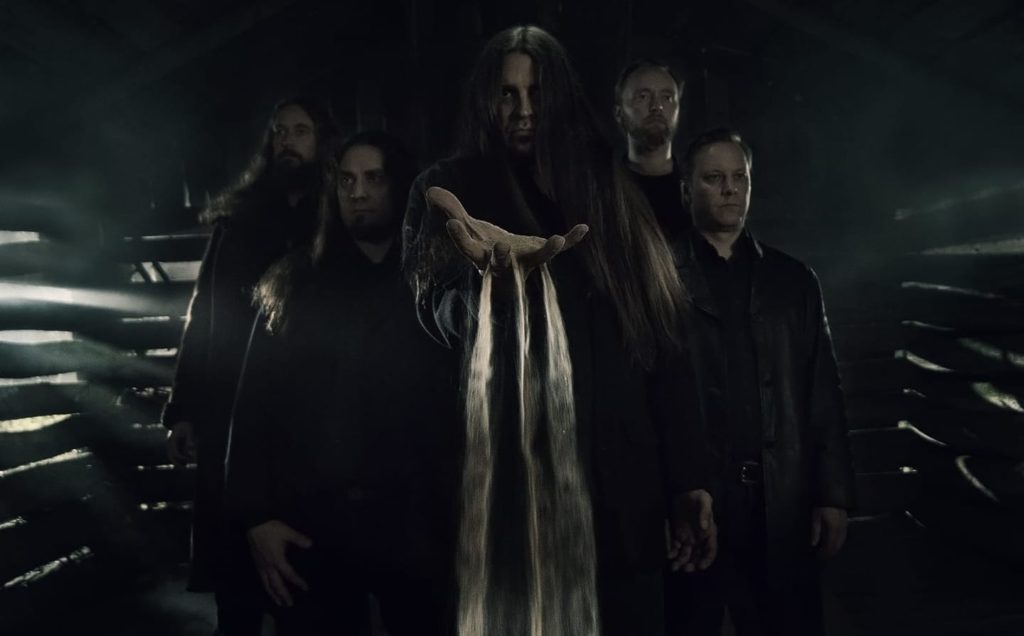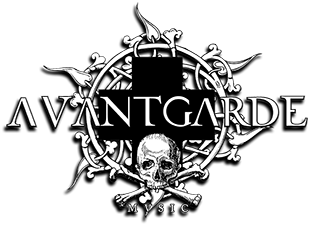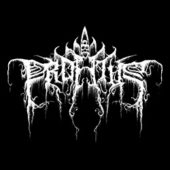Profetus was formed under the heavy snows of Tampere, Finland in 2006, to perform solemn and mournful, crushing and captivating Funeral Doom – brought to existence by A. Mäkinen & S. Kujansuu. The musical idea was to bring forth their musical love for old Doom Metal and especially to affine the funeral ambience of classic Finnish Funeral Doom acts like Thergothon, Unholy and Skepticism. As a leading frame of their future work, they decided to create the sound without bass guitar and replaced it with organ which would give a monotonous and more majestic background to their slow march.
The first drummer A. Palmu hooked in, as they started to rehearse for two musically different tracks, “The Skull of Silence” and “Winter Solstice” which later was recorded under the name of their very first work Saturnine. During the rehearsals, their stars did meet with E. Kuismin – their old friend who accepted the task to take care of all studio duties for their first release “Saturnine” under A. Mäkinen`s execution. After searching the band next visions little bit more they became aware of musical ideas that would lead them to goal only with more focused and technical drummer. Their paths separated with A. Palmu and the throne was handed over to V. Kujansuu, S`s brother. To make most out of the funeral harmonies E. Kuismin was asked to join as a guitarist after impressions on studio works of Saturnine and his reputation as a creative musician.
The band started to write new tracks for their next work, later to appear as the debut album Coronation of the Black Sun.
The spirit of the earlier release was still strong and next three tracks did go on with the continuous theme, the possession of Saturn, the Black Sun. In the closing part of the composing session, A. also asked his old friend, well-known Finnish occult author J. Nefastos to create lyrics for the closing track “Blood of Saturn”. After his art was used by the band in the covers of both Saturnine… and Coronation…, and being a great entity and one of most important persons in Finnish underground scene for A. as well, his collaboration on the lyrical work was greatly granted amongst the band. Like the other lyrics in Coronation…, the result did reflect the spiritual themes of his works: crucial “alpha and omega” and “Saturn”- mystique of his spiritual school mixed to a pitch-black shroud of darkness and light sheds of Gnostic mysticism on the album. The recording sessions did took place at summer 2008 in Kuopio, under command of Wicked Ischanius, the underground figure responsible of many extreme metal crimes of the area. The result was even more bleak and cold than band expected, and A. Mäkinen and E. Kuismin had some difficulties to craft everything to its final form.
While Coronation… was slowly approaching the wider amount of listeners, Profetus played their first live appearances with their solid line-up. Arranged by the band itself, “Milestones of Misery” – tour took its place in Finland in spring 2009, with Mournful Congregation, Mourning Beloveth, and Longing for Dawn. Due to these appearances Profetus took its toll more profoundly in the dusty catacombs of Doom, and later played a show with their soul-mates Tyranny and participated
the biggest underground festival in Finland, “Hammer Open air” in 2010. Their live shows were often described “close-to-religious” and “ritualistic” experiences, with living candlelight lining the stage.

After the creation of Coronation…, A. Mäkinen felt that he could take some different terms on making the whole Profetus concept; playing gigs had developed the band on its dynamics and the whole idea how band should sound was changed in his head to something more amorphous, heavy and subtle apart from dark and chilling freeze and purely monotonous shriek that had outlined their music earlier. After the silent period he started to prepare new song sketches, which were surely known to be different on both musical and conceptual terms: as result he wanted to press more on the dynamics of the band and natural recording methods than tight-written composition of the two first releases. A new lyrical concept was made, and this time the album story was rooted more on Finnish landscape, the nature-romantic but yet personal way that you can almost sense the dark grasp of burial soil under piercing northern light. The surroundings of the story were built on elements of spiritual journey and nature mystique in forms of “Willow-the-Wisp”, old folkloric ghosts reclaimed as lost spirits, the watchers and keepers of the Passage to afterlife. In folklore and legends, they were often described and seen as distant fires on the shore, The album was decided to carry a name …To Open the Passages in Dusk. The execution of album sound was once again done by A. Mäkinen, and crafted into its shape under watchful eyes of E. Kuismin. This time they also decided to build up the studio by themselves. The session took place in four long and cold winter nights spent in their rehearsal dungeon, and a small, wood-heated cabin called “the Church of Doom” located in the oldest section of the city of Tampere. Floating on as a solid and intuitive process in the light of the candles – their method was based on impulsive and natural live recording, which did capture more of the essence of their slow and beautiful, and yet despair-ridden melodies and tomb-crushing slow pulse than never before. It felt like the northern light did bled straight from its open wounds, covering them under blanket of snow and tears.
Two years later, Profetus entered the studio once again to record what would be their first EP: As All Seasons Die became a concept about the year cycle and the different aspects of death lying in every different season. The EP was highly acclaimed and paved the way for what would become the band’s fourth full-length studio album: The Sadness Of Time Passing marked the return of A. Mäkinen and his fellows after five long years of absence from the scenes, as well as their debut under the Avantgarde Music flag.
Discography (main releases only):
Coronation of the Black Sun Full-length 2009
…to Open the Passages in Dusk Full-length 2012
The Sadness of Time Passing Full-length 2019

